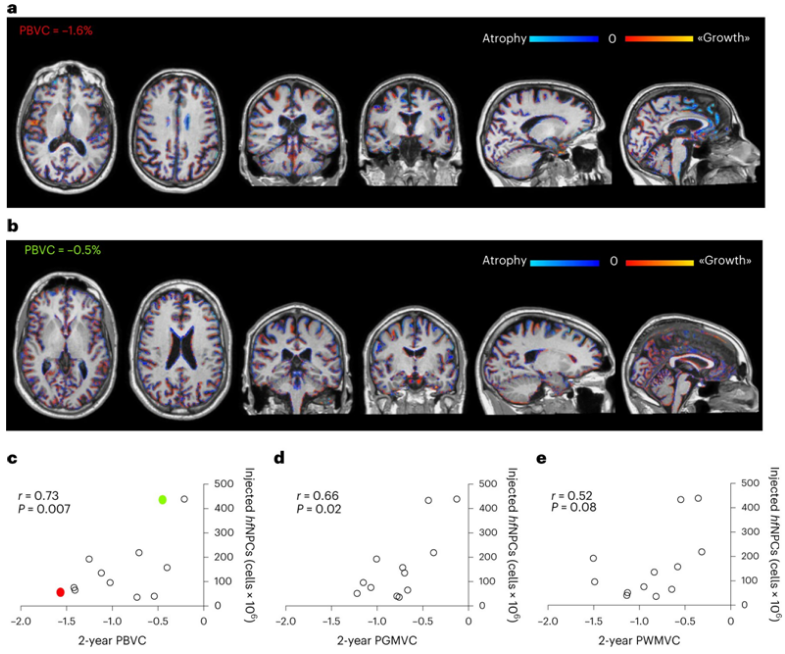预约演示
更新于:2025-05-07
SHMT1
更新于:2025-05-07
基本信息
关联
3
项与 SHMT1 相关的药物靶点 |
作用机制 SHMT1抑制剂 |
在研机构 |
原研机构 |
在研适应症 |
非在研适应症- |
最高研发阶段临床前 |
首次获批国家/地区- |
首次获批日期1800-01-20 |
靶点 |
作用机制 SHMT1抑制剂 |
在研机构 |
原研机构 |
在研适应症 |
非在研适应症- |
最高研发阶段临床前 |
首次获批国家/地区- |
首次获批日期1800-01-20 |
作用机制 SHMT1抑制剂 [+1] |
在研适应症 |
非在研适应症- |
最高研发阶段药物发现 |
首次获批国家/地区- |
首次获批日期1800-01-20 |
100 项与 SHMT1 相关的临床结果
登录后查看更多信息
100 项与 SHMT1 相关的转化医学
登录后查看更多信息
0 项与 SHMT1 相关的专利(医药)
登录后查看更多信息
287
项与 SHMT1 相关的文献(医药)2025-12-31·Virulence
The sulfur-related metabolic status of
Aspergillus fumigatus
during infection reveals cytosolic serine hydroxymethyltransferase as a promising antifungal target
Article
作者: Tabernero, Lydia ; Bignell, Elaine ; Al-Shidhani, Reem ; Scott, Jennifer ; Storer, Isabelle ; Alharthi, Reem ; Bin Shuraym, Hajer ; Zhao, Can ; Bromley, Michael ; Fortune-Grant, Rachael ; Amich, Jorge ; Sueiro-Olivares, Monica
2025-04-01·Biological Trace Element Research
Nutritional Impacts of Dietary Selenium, Iodine and their Interaction on Egg Performance, and Antioxidant Profile in Laying Longyuan Duck Breeders
Article
作者: Shang, Xiuguo ; Zheng, Chuntian ; Chen, Wei ; Jin, Chenglong ; Xia, Weiguang ; Wang, Shuang ; Elokil, Abdelmotaleb ; Wang, Shenglin ; Xu, Runsheng ; Zhang, Yanan ; Sarker, Md Touhiduzzaman
2024-12-01·Clinical Proteomics
Multiplex proteomics identifies inflammation-related plasma biomarkers for aging and cardio-metabolic disorders
Article
作者: Wu, Siting ; Zhao, Xue ; Shi, Fu-Dong ; Li, Yulin ; Chen, Jingshan
5
项与 SHMT1 相关的新闻(医药)2023-05-26
·生物谷
多发性硬化症(MS)是人类最常见的一种中枢神经脱髓鞘疾病,目前全球大约有近300万人都患有该病,其会影响机体除神经系统外的所有器官,从而导致患者出现不同程度的功能障碍。
多发性硬化症(MS)是人类最常见的一种中枢神经脱髓鞘疾病,目前全球大约有近300万人都患有该病,其会影响机体除神经系统外的所有器官,从而导致患者出现不同程度的功能障碍;近年来,科学家们在人类多发性硬化症研究领域取得了多项重要成果,本文中,小编就对相关研究进行整理,分享给大家!
【1】Nat Med:移植胎儿神经前体细胞有望治疗多发性硬化症
doi:10.1038/s41591-022-02097-3
近日,一篇发表在国际杂志Nature Medicine上题为“Neural stem cell transplantation in patients with progressive multiple sclerosis: an open-label, phase 1 study”的研究报告中,来自意大利IRCCS圣拉斐尔科学研究所、圣拉斐尔生命健康大学、圣杰拉尔多医院和热那亚大学等研究机构的研究人员发现接受从流产胎儿中收集的神经前体细胞(neural precursor cell)的多发性硬化症患者在一项早期临床试验中显示出这种疾病的标志物减少。
注射人类胎儿神经前体细胞的数量与脑容量损失呈负相关
图片来源:Nature Medicine, 2023, doi:10.1038/s41591-022-02097-3。
在这篇论文中,这些作者描述了从10和12周大的流产胎儿中收集神经前体细胞,并在这项临床试验中把它们注射到多发性硬化症患者的脊柱中。多发性硬化症是一种神经退行性疾病,可以减少感觉和使用四肢和身体的其他部分。它是由免疫系统错误地攻击和破坏包裹在神经细胞轴突外面的髓鞘造成的。已开发了许多治疗方法来治疗这种疾病的症状,但没有治愈方法。在这项新的研究中,这些作者尝试了一种新的方法来治愈这种疾病---给患者提供由选择堕胎的女性捐赠的胎儿神经前体细胞。
这项临床试验涉及向12名多发性硬化症患者注射胎儿神经前体细胞四次。在注射之前,所有患者都有严重的症状,并且都卧床不起。此外,每名患者都接受了腰部穿刺,从脊髓中提取液体,测量多发性硬化症标志物---神经保护性和抗炎分子----的水平。每名患者还接受了核磁共振扫描,以测量灰质体积---多发性硬化症患者会逐渐失去大脑灰质。
【2】Immunity:识别出诱发人类多发性硬化症的关键生物性通路
doi:10.1016/j.immuni.2023.04.013
胶质细胞和中枢神经系统浸润的白细胞能促进机体多发性硬化症的发生,然而,这些在本体上不同的人群之间控制串扰的网络,目前研究人员并不清楚。近日,一篇发表在国际杂志Immunity上题为“Interleukin-3 coordinates glial-peripheral immune crosstalk to incite multiple sclerosis”的研究报告中,来自西奈山Icahn医学院等机构的科学家们通过研究发现,大脑细胞和外周免疫细胞之间的串扰或能调节多发性硬化症的进展,这一研究发现解释了大脑和免疫系统之间彼此对话的此前未知的一种方式,或有望帮助识别出治疗多发性硬化症和其它大脑障碍的新型治疗靶点。
这项研究中,研究人员描述了炎性蛋白白介素-3(IL-3)如何协调这种细胞间的交流,并煽动来自血液中的免疫细胞招募到大脑中,从而加剧大脑炎症的发生并恶化多发性硬化症患者的病理学表现。研究者Cameron McAlpine教授说道,尽管我们已经知道大脑细胞和免疫细胞对于多发性硬化症的发生非常重要,但我们目前并不清楚能扮演信使从而介导这些不同的细胞群之间交流沟通的通路或蛋白。如今研究人员在多发性硬化症中识别出了一种此前未知的生物学通路,其主要涉及以IL-3作为大脑和免疫细胞之间串扰的介导子,同时其还是大脑炎症发生的重要调节子。
多发性硬化症是一种慢性的神经炎性疾病,其在美国影响着大约100万人的健康,疾病症状通常会在20岁至40岁之间出现,这种疾病的特点是持续数天或数周的神经系统残疾的发作,往往会在几十年内不断进展,最终导致机体活动能力受损,并降低认知功能,最终引起患者瘫痪和过早死亡,目前针对这种疾病没有有效的治愈性策略。自从被发现几十年来,IL-3就被认为与多种人类疾病发生直接相关,此前西奈山心血管疾病研究所的同一个研究团队开创性地发现了IL-3与阿尔兹海默病之间的关联,同时其还与多种炎症及自身免疫性疾病发生相关,但其在大脑中所扮演的关键角色一直并未得到充分的研究。
【3】Science子刊:新研究有助于解释EBV病毒如何触发多发性硬化症
doi:10.1126/sciadv.adg3032
近日,一篇发表在国际杂志Science Advances上题为“Cross-reactive EBNA1 immunity targets alpha-crystallin B and is associated with multiple sclerosis”的研究报告中,来自瑞典卡罗林斯卡学院的研究人员发现了进一步的证据,证明爱泼斯坦-巴尔病毒(Epstein-Barr virus, EBV)如何触发多发性硬化症或推动疾病进展。他们发现,一些人拥有针对EBV的抗体,这些抗体会错误地攻击大脑和脊髓中的一种蛋白。
抗CRYAB抗体与EBNA1的同源序列发生交叉反应
图片来源:Science Advances, 2023, doi:10.1126/sciadv.adg3032。
作为一种疱疹病毒,EBV在生命早期感染大多数人,然后留在体内,通常不引起症状。它是人类中最广泛的病毒之一。世界上90%以上的人都感染了EBV,并以潜伏状态终身携带这种病毒,通常没有症状。大多数人在儿童时期被感染,很少或没有症状,但在年轻的成年人中,该病毒常常引起传染性单核细胞增多症(infectious mononucleosis),也被称为腺热或 “接吻病”。
EBV与神经系统疾病多发性硬化症(multiple sclerosis)之间的联系在多年前被发现,并从那时起就一直困惑着科学家们。越来越多的证据,包括去年发表在Science和Nature上的两篇论文(Science, 2022, doi:10.1126/science.abj8222; Nature, 2022, doi:10.1038/s41586-022-04432-7),表明EBV感染先于多发性硬化症,而且针对该病毒的抗体可能参与其中。然而,这种分子机制似乎因患者而异,在很大程度上仍然是未知的。
研究者Olivia Thomas表示,多发性硬化症是一种极其复杂的疾病,但我们的研究提供了一个重要的谜团,可以解释为什么有些人会患上这种疾病。我们发现某些针对EBV的抗体,在正常情况下会对抗感染,但会错误地靶向大脑和脊髓,并造成损害。
【4】ACTN:科学家识别出与人类多发性硬化症发病相关的新型风险基因
doi:10.1002/acn3.51699
近日,一篇发表在国际杂志Annals of Clinical and Translational Neurology上题为“Brain proteome-wide association study linking-genes in multiple sclerosis pathogenesis”的研究报告中,来自四川大学华西医院等机构的科学家们通过研究发现,三个基因及其表达的蛋白或许会参与机体多发性硬化症的发病机制。
这项研究中,研究人员通过对数千名多发性硬化症患者和未患多发性硬化症的患者进行研究,分析了其大脑中的基因及其所表达的蛋白的相关信息,结果发现,多发性硬化症患者和未患病者大脑组织中名为SHMT1、FAM120B和ICA1L的三个基因的表达水平及其所表达的蛋白质或许存在明显差。
研究者指出,通过研究这些基因的功能或能帮助揭示参与人类多发性硬化症发育和进展背后的机制的相关信息,此外,研究人员还阐明了人类多发性硬化症发生的病理学机制,这或许就为后期科学家们开发新型疗法以及优先选择最具潜力的治疗性靶点提供了新的线索和思路。
综上,本文研究结果表明,SHMT1、FAM120B和ICA1L三个基因的功能失调或许会介导机体的多发性硬化症风险,相关研究货位阐明引起人类多发性硬化症的发病机制提供了新的线索,也为后期寻找开发新型疗法的潜在靶点提供了一定的研究基础。
【5】Nature:利用FIND-seq成功分离和分析在多发性硬化症中发挥关键作用的星形胶质细胞亚群
doi:10.1038/s41586-022-05613-0
罕见的细胞类型可能对人类健康产生不适当的影响。以前的研究已表明大脑和脊髓中的星形胶质细胞的一个亚群可能是导致多发性硬化症(MS)的原因。在这种疾病中,免疫系统会攻击保护神经的覆盖层。但要找到这些罕见的细胞并非易事,科学家们需要确定独特的表面标志物,以将这些罪魁祸首细胞与其他细胞区分开来。单细胞RNA测序可以帮助找到它们,即使在没有区分性的表面标志物的情况下,也是如此,但是这种技术可能变得极其昂贵。
为了解决这个问题,近日,一篇发表在国际杂志Nature上题为“Identification of astrocyte regulators by nucleic acid cytometry”的研究报告中,来自美国布莱根妇女医院和加州大学旧金山分校等研究机构的研究人员通过结合核酸细胞仪、微流控技术和液滴分选,开发出FIND-se,可根据数字液滴PCR检测的mRNA生物标志物的表达来分离和分析感兴趣的罕见细胞。
通过使用这种方法,这些作者非常详细地分析了驱动中枢神经系统炎症和神经退化的星形胶质细胞群体。当与其他工具结合使用时,FIND-seq确定了由盐皮质激素受体NR3C2和NCOR2(nuclear receptor corepressor 2)控制的信号通路,这些信号通路在小鼠和人类的致病性星形胶质细胞的产生中起着重要作用。在另一项研究中,他们利用FIND-seq确定了HIV在接受抗逆转录病毒疗法治疗的患者中用来“躲藏”免疫细胞的机制。
【6】Cell:新研究揭示数十种肠道细菌与多发性硬化症有关
doi:10.1016/j.cell.2022.08.021
近日,一篇发表在国际杂志Cell上题为“Gut microbiome of multiple sclerosis patients and paired household healthy controls reveal associations with disease risk and course”的研究报告中,来自iMSMS(国际多发性硬化症微生物组研究)联盟的研究人员通过研究发现,多发性硬化症(MS)患者和健康人的肠道细菌图谱之间存在显著差异,接受不同药物治疗的MS患者之间也存在差异。虽然这些变化中的一些以前就有报道,但大多数是首次报道。他们还发现了这些细菌可能潜在影响疾病产生和治疗反应的新机制。
图片来源:Cell, 2022, doi:10.1016/j.cell.2022.08.021。
近年来,科学家们越来越多地将肠道细菌与包括糖尿病和关节炎在内的一些疾病---不仅仅是肠道疾病---联系在一起。随着2010年代初DNA测序技术的进步,微生物组研究领域真正打开了局面,使科学家们能够详细了解粪便、血液、粘膜组织和皮肤样本中存在哪些细菌。直到最近,大多数表明肠道细菌和MS之间存在联系的实验证据都来自于对小鼠的研究。对人类的研究提供了不一致的结果---部分原因是参与者的数量较少,以及未能筛选出环境对个人微生物组的影响。一个人住在哪里---农村或城市,在山顶或在炼油厂旁边---对我们身体容纳的细菌起着很大的作用。
为了克服这些限制,参与IMSMS联盟的研究人员从三大洲招募了大量的多发性硬化症患者,并从与患者相同的家庭中选择了基因不相关的对照者。这是第一次在如此大规模的研究中使用这种方法。这项新的研究描述了美国、英国、西班牙和阿根廷的576名患者和同等数量的家庭对照者之间的肠道微生物组谱差异。这些发现可能会带来新的治疗方法,涉及操纵微生物组或饮食干预。
【7】Nature:对同卵双胞胎的研究揭示多发性硬化症的环境和遗传影响
doi:10.1038/s41586-022-04419-4
近日,一篇发表在国际杂志Nature上题为“Twin study reveals non-heritable immune perturbations in multiple sclerosis”的研究报告中,来自瑞士苏黎世大学和德国慕尼黑大学医院的研究人员研究了成对同卵双胞胎的免疫系统,以确定环境和遗传对多发性硬化症的影响。在这个过程中,他们可能发现了导致这种疾病的T细胞的前体细胞。
多发性硬化症(MS)是一种中枢神经系统的慢性炎症性疾病,是青年人神经系统损伤的最常见原因。在多发性硬化症中,患者自身的免疫系统攻击大脑和脊髓,导致累积的神经系统缺陷,如视力受损、感觉障碍、运动障碍(如限制行走能力)以及认知障碍。尽管多发性硬化症的病因仍不清楚,但多种遗传风险因素和环境影响已经与该疾病有关。
近年来的研究已清楚地表明,遗传风险变体是患上多发性硬化症的一个必要条件。基于研究者的研究,他们能够证实我们的免疫系统的组成大约有一半是由遗传学决定的,这项研究发现,这些遗传影响虽然总是存在于多发性硬化症患者身上,但其本身并不足以引发多发性硬化症。
在这项新的研究中,这些作者招募了61对同卵双胞胎,其中在每队同卵双胞胎中,一人受多发性硬化症影响,而另一人是健康的。从遗传学的角度来看,每对双胞胎是相同的,研究者表示,尽管健康的双胞胎也有最大的多发性硬化症遗传风险,但他们没有表现出这种疾病的临床症状。
【8】Neuron:科学家发现人类多发性硬化症风险的新型遗传线索
doi:10.1016/j.neuron.2021.12.034
多发性硬化症(MS,Multiple sclerosis)的主要特点是免疫细胞对少突神经胶质(oligodendroglia)和髓磷脂(myelin)的定向攻击,这些细胞被认为是导致多发性硬化症易感性的主要驱动因素。近日,一篇发表在国际杂志Neuron上题为“Epigenomic priming of immune genes implicates oligodendroglia in multiple sclerosis susceptibility”的研究报告中,来自瑞典卡罗琳学院等机构的科学家们通过研究发现,中枢神经系统中名为少突胶质细胞(oligodendrocytes)的特殊细胞或许在多发性硬化症中扮演着不同的重要角色,这要比此前科学家们想象中不同,相关研究结果或有望帮助开发治疗多发性硬化症的新型疗法。
多发性硬化症是因免疫细胞攻击少突胶质细胞和其所产生的髓磷脂所导致的一种疾病,髓磷脂是神经细胞周围的一种绝缘保护套,这些攻击会破坏大脑和脊髓中的信息流,从而引发神经损伤,进而诱发与多发性硬化症相关的疾病症状,比如震颤和丧失步态等。理解影响多发性硬化症风险的机制对于寻找新型有效的疗法至关重要,此前的遗传学研究在人类基因组中发现了特殊的区域,其包含了与多发性硬化症风险增加相关的特定突变,即单核苷酸多态性,很多这些区域都定位在免疫细胞中处于激活状态的基因附近。
这项研究中,研究人员通过对小鼠和人类大脑组织样本进行分析后发现,少突胶质细胞及其祖细胞在免疫基因附近和多发性硬化症风险相关区域中具有开放的构象,这或许就表明,多发性硬化症风险突变或许在少突胶质细胞及其祖细胞中附近基因的激活上扮演着重要角色,也意味着其可能在多发性硬化症发生过程中发挥着比此前认为更重要的角色。
【9】EbioMedicine:揭示多发性硬化症患者机体肠道真菌微生物组发生改变的分子机制
doi:10.1016/j.ebiom.2021.103557
真菌微生物组(mycobiome)是肠道微生物组的真菌组分,其与多种自身免疫性疾病的发生有关,然而,目前研究人员并不清楚真菌微生物组在多发性硬化症发生过程中所扮演的关键角色。近日,一篇发表在国际杂志EbioMedicine上题为“Alterations of the gut mycobiome in patients with MS”的研究报告中,来自华盛顿大学医学院等机构的科学家们通过研究发现,摄入过多肉类或会让肠道中特定细菌的水平减少,且血液中特定的免疫细胞更多,而这些或许都与多发性硬化症的发生有关;文章汇总,研究者找出了一些微妙的关联,其或有望帮助理解疾病发生的原因。
多发性硬化症是一种在全球影响着不到300万人健康的一种自身免疫性疾病,该病仅在美国每年就会花费280亿美元。多发性硬化症在特定地区更为流行,尤其是北中纬度地区,这就表明,地理环境与该病存在某种关联,其或许涉及饮食;但要阐明饮食、免疫反应和多发性硬化症之间的确切关联,对于研究人员而言一直非常困难;多发性硬化症显然是一种自身免疫性疾病,即机体会攻击其神经周围的绝缘层,当绝缘层被破坏到一定程度时,神经就会开始失灵,就像绝缘层被破损一样的电线一样发生故障,但首先要阐明到底是什么样的机制出发了机体攻击神经系统中的绝缘层。
如今,越来越多的研究证据表明,细菌或许参与了其中;生活在肠道中的细菌或会影响机体免疫系统的功能,而且我们所摄入的食物也会影响肠道中的细菌;为此研究者Yanjiao Zhou等人对49名志愿者(25名多发性硬化症和24名健康对照个体)进行研究,分析了其肠道微生物组、免疫系统、饮食和血液中代谢产物,旨在寻找其中的微妙但非常重要的关联。研究者Zhou说道,我们发现了很多肠道菌群或与多发性硬化症及多发性硬化症患者残疾的严重程度有关,而且多发性硬化症患者机体中自身免疫性标志物和标志性代谢物的水平会增加,但真正让研究人员感兴趣的是这些系统是如何进行连接的,以及饮食如何参与到这些连接中;利用多组学方法,研究人员试图关闭这个循环并揭示多个系统之间的关联。
【10】Nature:科学家有望开发出阻断进行性多发性硬化症的新疗法
doi:10.1038/s41586-021-03892-7
多发性硬化症(MS,Multiple sclerosis)的病变在形成后几个月内并不会得到任何缓解,其会表现会进行性的脱髓鞘和轴突变性,在体内可以通过MRI扫描的顺磁边缘在体内识别。近日,一篇发表在国际杂志Nature上题为“A lymphocyte–microglia–astrocyte axis in chronic active multiple sclerosis”的研究报告中,来自约翰霍普金斯大学等机构的科学家们通过研究绘制出了多种基因、分子、细胞的活性及其在特定类型的多发性硬化症患者大脑病变过程中的相互作用,这些病变被认为会导致患者进展为渐进性的残疾。相关研究结果或能提供一种潜在的新方法来有效检测新型疗法阻断神经退化的潜力,并且确定了参与组织损伤的最会祸首,其或许在未来有望作为新型靶点来帮助科学家们开发新型疗法。
利用MRI可以在体内观察到慢性活动性/缓慢性扩张边缘的病变。
图片来源:Absinta, M.,et al. Nature (2021). doi:10.1038/s41586-021-03892-7
利用强大的MRI大脑扫描,研究人员识别出了患者大脑的病变或多发性硬化症活动和损伤位点,这些病变存在一定的周围边缘,由于其铁含量而会在扫描过程中被显示出来;这些边缘结构往往与多发性硬化症患者的进行性残疾有关,而且其可以在并未发生自然愈合的病灶周围形成,似乎标志着患者机体持续的炎症和神经组织损伤。
未来更好地确定这些病变中所发生的事件,研究人员利用先进的技术识别出了组织边缘的分子活动以及参与其中的大脑细胞和免疫细胞的特殊类型;研究者发现,特殊的脑细胞亚型似乎能驱动病变部位中的神经退化,其中一些在其它神经变性疾病中也会被发现;如今研究人员识别出了一种称之为补体(尤其是C1q)的免疫机制或许参与其中,同时在小鼠和组织培养物中,阻断C1q就能帮助有效解决组织边缘病变及其慢性炎症。(生物谷Bioon.com)
生物谷更多精彩盘点!敬请期待!

临床研究
2022-12-31
·生物谷
四川大学华西医院、成都医学院第三附属医院与海南省人民医院的一项联合研究发现,SHMT1,FAM120B和ICA1L基因可能与MS的发病机制有关。
多发性硬化症(MS)是一种慢性炎症性、脱髓鞘的中枢神经系统退行性疾病,影响了全球超过230万人。由于MS的临床特征不同且现有治疗效果差,因此鉴定MS的生物标志物以帮助早期诊断和治疗非常重要。近期,四川大学华西医院、成都医学院第三附属医院与海南省人民医院的一项联合研究发现,SHMT1,FAM120B和ICA1L基因可能与MS的发病机制有关。研究成果发表在《Annals of Clinical and Translational Neurology》期刊,标题为“Brain proteome-wide association study linking-genes in multiple sclerosis pathogenesis”。
研究人员利用全蛋白质组关联研究(PWAS),将MS全基因组关联研究(GWAS)数据与背外侧前额叶皮层(dlPFC)两个不同的人脑蛋白质组数据进行整合,从而识别出通过影响脑蛋白丰度而导致MS风险的基因。首先,研究人员利用ROSMAP数据集中的376例dlPFC样本的蛋白质数量性状位点(pQTL)数据,整合已有的MS GWAS结果,通过PWAS鉴定出51个顺式调节脑蛋白水平的基因。其次,使用相同的WS GWAS数据与Banner数据集中的152例样本的pQTL数据整合分析,与前面发现的51个基因相比较,18个基因得到验证。接下来,通过贝叶斯共定位分析发现了6个与MS有因果关系的风险基因。最后,差异表达分析发现SHMT1和FAM120B在白质病变区域均上调,ICA1L在灰质病变区域下调。
该项研究为MS的发病机制提供了新的见解,并为未来的治疗提供了潜在的靶标。
临床研究
2022-12-22
·生物谷
来自四川大学华西医院等机构的科学家们通过研究发现,三个基因及其表达的蛋白或许会参与机体多发性硬化症的发病机制。
近日,一篇发表在国际杂志Annals of Clinical and Translational Neurology上题为“Brain proteome-wide association study linking-genes in multiple sclerosis pathogenesis”的研究报告中,来自四川大学华西医院等机构的科学家们通过研究发现,三个基因及其表达的蛋白或许会参与机体多发性硬化症的发病机制。
这项研究中,研究人员通过对数千名多发性硬化症患者和未患多发性硬化症的患者进行研究,分析了其大脑中的基因及其所表达的蛋白的相关信息,结果发现,多发性硬化症患者和未患病者大脑组织中名为SHMT1、FAM120B和ICA1L的三个基因的表达水平及其所表达的蛋白质或许存在明显差。
科学家识别出与人类多发性硬化症发病相关的新型风险基因。
图片来源:Annals of Clinical and Translational Neurology (2022). DOI:10.1002/acn3.51699
研究者指出,通过研究这些基因的功能或能帮助揭示参与人类多发性硬化症发育和进展背后的机制的相关信息,此外,研究人员还阐明了人类多发性硬化症发生的病理学机制,这或许就为后期科学家们开发新型疗法以及优先选择最具潜力的治疗性靶点提供了新的线索和思路。
综上,本文研究结果表明,SHMT1、FAM120B和ICA1L三个基因的功能失调或许会介导机体的多发性硬化症风险,相关研究货位阐明引起人类多发性硬化症的发病机制提供了新的线索,也为后期寻找开发新型疗法的潜在靶点提供了一定的研究基础。(生物谷Bioon.com)
原始出处:
Tingting Jia, Yanni Ma, Fengqin Qin, et al. Brain proteome-wide association study linking-genes in multiple sclerosis pathogenesis, Annals of Clinical and Translational Neurology (2022). DOI: 10.1002/acn3.51699
基因疗法
分析
对领域进行一次全面的分析。
登录
或

生物医药百科问答
全新生物医药AI Agent 覆盖科研全链路,让突破性发现快人一步
立即开始免费试用!
智慧芽新药情报库是智慧芽专为生命科学人士构建的基于AI的创新药情报平台,助您全方位提升您的研发与决策效率。
立即开始数据试用!
智慧芽新药库数据也通过智慧芽数据服务平台,以API或者数据包形式对外开放,助您更加充分利用智慧芽新药情报信息。
生物序列数据库
生物药研发创新
免费使用
化学结构数据库
小分子化药研发创新
免费使用
